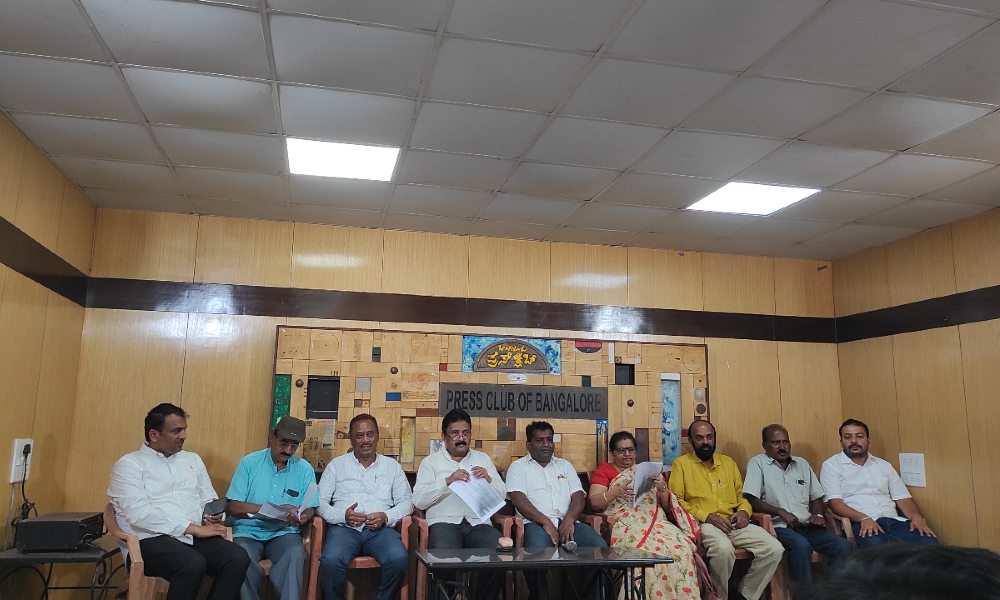The association demanded formation of a high level committee to reconsider the reservation under Article 371J and to suspend further promotions till then.
Members of Hasiru Prathishtana, an association working on social and welfare issues in Karnataka, demanded reconsideration of reservation for promotions in government jobs for people from the Hyderabad-Karnataka region.
In a press conference held at the Press Club, K. G. Kumar, President of Hasiru Prathishtana, said that the central government introduced Article 371J, to promote development of the Hyderabad -Karnataka region. Under this Article, people who belong to the Hyderabad-Karnataka region were given reservation in government jobs, and education and vocational training institutions.
However, the association members pointed out that since candidates from Hyderabad-Karnataka region are considered first for vacancies in government jobs, they are higher in seniority level than those from other parts of Karnataka, making it unfair to the rest. He added that the seniority of employees from the Hyderabad-Karnataka region must be treated separately while recruiting and promoting them.
The association demanded formation of a high level committee comprising officials from all parts of Karnataka to look into the issue and to suspend the separate reservation in promotions related to the Hyderabad-Karnataka region till then.
K. C. Shivaram, one of the members of the association called the reservation a violation of the right to equality.
However, legal experts have a different opinion. Pritam Kumar Ghosh, Assistant Professor at School of Law, RV University, said, “Article 371J is an exception to the right to equality and therefore is not a violation.” In legal terms it can be called a “reasonable classification” as it reserves seats in appointment and promotion for socially, economically and educationally backward classes who are applying to or are already working in government jobs and who do not have easy access to public sector employment unlike the forward classes of the society, he added.




